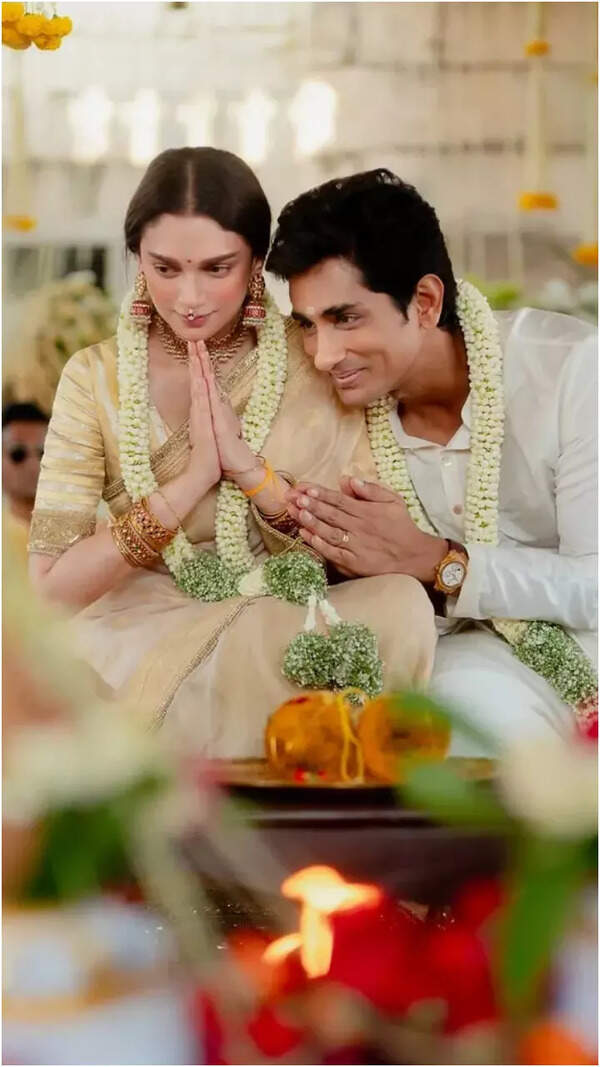- News
- entertainment
- hindi
- theatre
- Lillete Dubey: Theatre has always been a very ephemeral medium, unlike cinema
Trending
Lillete Dubey: Theatre has always been a very ephemeral medium, unlike cinema
For me, the tryst with theatre began when I was very young and by the time I was in college, I was completely immersed in it

For me, the tryst with theatre began when I was very young and by the time I was in college, I was completely immersed in it. Through life's ebb and flow across a span of 50 years, my passion for theatre has never dimmed. I'm a producer and director, I also act in my plays and this is a very special medium for me because in it I'm completely in control of my craft.
On stage the actor is king. In films, it’s the director!
Theatre has flourished for thousands of years and the ancient Sanskrit and Greek texts confirm that. However, what remains intrinsic to theatre till date is the aspect of storytelling. There are many ways to tell a story across themes and every director has a different interpretation and a different vision of telling the same story.
We have been telling stories since time immemorial and today with all the technology at our disposal, we can experiment a lot with visuals. A little bit of technology can enhance or improve a play but I don't endorse gimmickry or the use of technical wizardry just for the sake of it. I am a great believer that the heart of a play is honestly a good story, great actors, a capable director, and even additional elements like lighting, costumes, and music are only a bonus.
This is what makes certain plays timeless. Classic plays are adapted because they remain relevant across time. This is why the plays penned by Vijay Tendulkar, Mohan Rakesh, and world-renowned playwrights like
I do feel sad though that so many classic Indian plays have not been adapted into different languages and hence remain underappreciated. This is one of the reasons why I have made it my mission to showcase original writing in Indian theatre. When I adapt a Marathi or a Kannada play in English, audiences are absolutely amazed to discover just how good they are.
While adapting foreign plays in our languages, we should also work towards ensuring that our regional plays are translated into diverse languages for a broader national and international reach.
What is heartening is that every year, I see new theatre groups emerging. There was a time when one could easily book Prithvi Theatre for a performance. But now it is very difficult because there are so many productions being staged throughout the week.
I also see a growing awareness and interest in theatre in India and abroad. The productions are also getting more imaginative, innovative, and experimental. The quality and the production values are also improving a lot.
On the other hand, there are many challenges that must be addressed as well. It's not that Indian directors don't have the requisite imagination to do great theatre. It's just that they don't have the money to follow their vision. When I see foreign productions, I don't think they have superior performances or direction. It is just that they have more money to mount their productions with better sets. They can afford better lighting and technical finesse. In India, we have to raise money on our own steam and if we had more resources, our production would be equally good, if not better.
I also feel, that archiving important works is important because theatre has always been a very ephemeral medium, unlike cinema. It is only now in the last 20 to 30 years that people have started recording their plays and documenting them. With Jaya, my last play, which is a magnum opus rock musical based on the 'Mahabharata', I used multiple cameras for the recording, but this is not always affordable for every play.
Thankfully, teleplays are now helping to facilitate the archival process. Zee Theatre for instance has taken many classic plays and archived them for posterity. Not only are these teleplays recorded with multiple cameras, but are edited in a very professional way, which most theatre companies cannot afford. So, I am very grateful and wish they would do the same with many more classic Indian plays expand their reach, and include some more plays of mine.

On stage the actor is king. In films, it’s the director!
Theatre has flourished for thousands of years and the ancient Sanskrit and Greek texts confirm that. However, what remains intrinsic to theatre till date is the aspect of storytelling. There are many ways to tell a story across themes and every director has a different interpretation and a different vision of telling the same story.
We have been telling stories since time immemorial and today with all the technology at our disposal, we can experiment a lot with visuals. A little bit of technology can enhance or improve a play but I don't endorse gimmickry or the use of technical wizardry just for the sake of it. I am a great believer that the heart of a play is honestly a good story, great actors, a capable director, and even additional elements like lighting, costumes, and music are only a bonus.
A good story that is really well performed will hold the attention of the audience in every era. The test of a good play is that even if you strip it to its core, without any major technical enhancements it would still be powerful.
This is what makes certain plays timeless. Classic plays are adapted because they remain relevant across time. This is why the plays penned by Vijay Tendulkar, Mohan Rakesh, and world-renowned playwrights like
Shakespeare are still being performed worldwide. Shakespeare and Anton Checkov's plays have been adapted in so many languages.
I do feel sad though that so many classic Indian plays have not been adapted into different languages and hence remain underappreciated. This is one of the reasons why I have made it my mission to showcase original writing in Indian theatre. When I adapt a Marathi or a Kannada play in English, audiences are absolutely amazed to discover just how good they are.
While adapting foreign plays in our languages, we should also work towards ensuring that our regional plays are translated into diverse languages for a broader national and international reach.
What is heartening is that every year, I see new theatre groups emerging. There was a time when one could easily book Prithvi Theatre for a performance. But now it is very difficult because there are so many productions being staged throughout the week.
I also see a growing awareness and interest in theatre in India and abroad. The productions are also getting more imaginative, innovative, and experimental. The quality and the production values are also improving a lot.
On the other hand, there are many challenges that must be addressed as well. It's not that Indian directors don't have the requisite imagination to do great theatre. It's just that they don't have the money to follow their vision. When I see foreign productions, I don't think they have superior performances or direction. It is just that they have more money to mount their productions with better sets. They can afford better lighting and technical finesse. In India, we have to raise money on our own steam and if we had more resources, our production would be equally good, if not better.
I also feel, that archiving important works is important because theatre has always been a very ephemeral medium, unlike cinema. It is only now in the last 20 to 30 years that people have started recording their plays and documenting them. With Jaya, my last play, which is a magnum opus rock musical based on the 'Mahabharata', I used multiple cameras for the recording, but this is not always affordable for every play.
Thankfully, teleplays are now helping to facilitate the archival process. Zee Theatre for instance has taken many classic plays and archived them for posterity. Not only are these teleplays recorded with multiple cameras, but are edited in a very professional way, which most theatre companies cannot afford. So, I am very grateful and wish they would do the same with many more classic Indian plays expand their reach, and include some more plays of mine.
End of Article
FOLLOW US ON SOCIAL MEDIA










